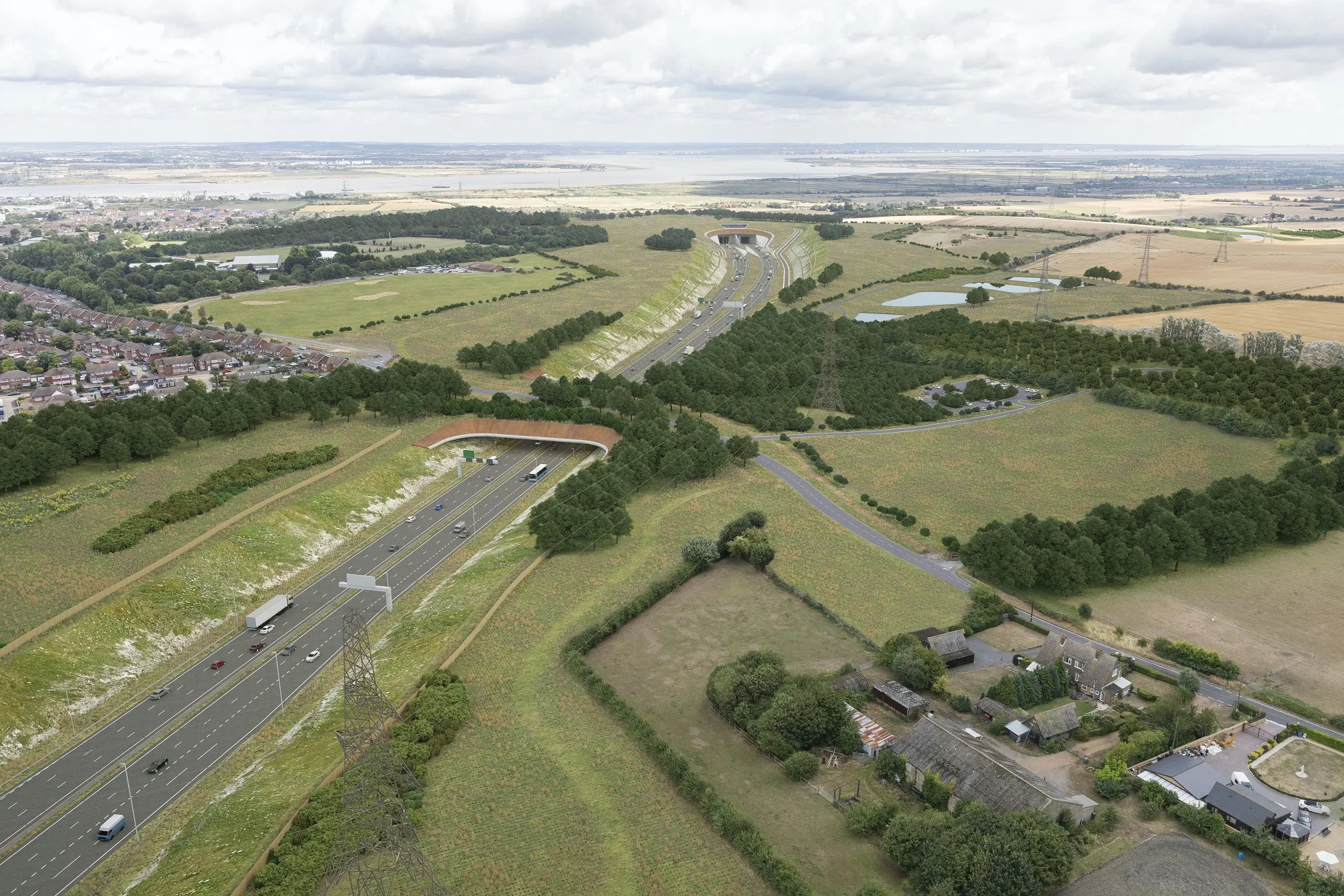The first of the new emergency areas went live late last week. More upgrades are planned should the trial be successful. This change is part of an ongoing review into the design and spacing of emergency areas on smart motorways that is due to report in the autumn.
Smart motorways use variable speed limits to manage traffic and tackle congestion, new technology to give drivers better information on road conditions ahead and, in smart motorway upgrades delivered since 2004, convert the hard shoulder into an extra traffic lane. Highways England says evidence shows that smart motorways are successfully adding extra capacity, improving journey times and are just as safe as conventional motorways.
If the redesigned emergency areas are successful and drivers find the changes beneficial, more orange emergency areas will be introduced across England’s network of smart motorways.
UK motorway gets first ‘orange’ smart motorway emergency area
The first new-style smart motorway emergency area, where drivers can stop in an emergency, is being trialled on the M3 motorway in Surrey. Highways England is trialling the redesigned emergency area in response to public concern about smart motorways. It has a highly visible orange road surface and better signs to help improve its visibility make it more obvious to drivers on smart motorways. It is also hoped that it will encourage drivers to only use them in emergency situations. The first of the new emerg
July 17, 2017
Read time: 2 mins
The first new-style smart motorway emergency area, where drivers can stop in an emergency, is being trialled on the M3 motorway in Surrey.








